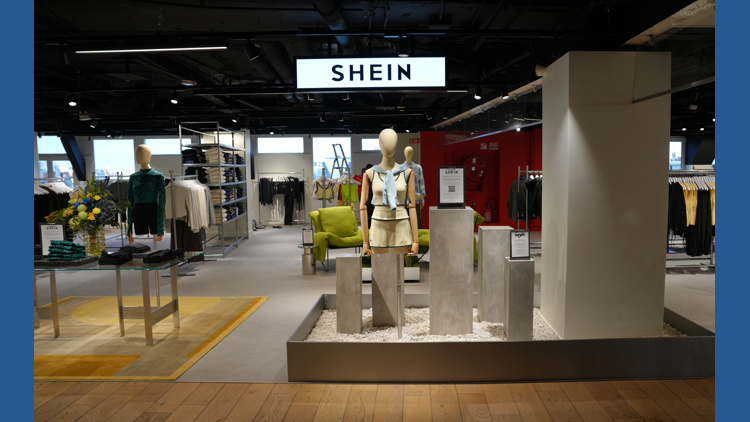Shein, the fast-fashion giant known for its rapid production and low prices, opened its first permanent store in Paris on September 27, 2023. This significant move has drawn widespread criticism, as activists and environmental groups express concerns about the company’s practices and their implications for sustainability.
The Paris store’s launch comes amid heightened scrutiny over Shein’s environmental impact and labor practices. Critics point to the brand’s reliance on fast fashion, which is often associated with excessive waste and exploitation of workers. Notably, the French Ministry of Ecological Transition has voiced its disapproval, highlighting the need for greater responsibility in fashion retail. The ministry’s stance reflects a growing movement in Europe aimed at holding companies accountable for their environmental footprints.
In addition to environmental concerns, Shein has faced backlash for its controversial product offerings. Recently, the company has been criticized for selling dolls that some have described as inappropriate for children. This controversy has intensified discussions about the ethical implications of fast fashion and its influence on consumer culture. Activists argue that such products should not be part of a brand’s inventory, especially one that targets younger demographics.
Activism and Response to Shein’s Practices
The backlash against Shein is not limited to environmentalists. Organizations like the International Labour Organization (ILO) and the Fashion Sustainability and Social Accountability (FSSAI) have raised alarms about the labor practices within the fast-fashion industry. They stress the importance of transparency and fair treatment of workers, particularly in countries where labor laws may be less stringent.
Activists have organized protests around the store’s opening, urging consumers to reconsider their purchasing choices. “We want to raise awareness about the hidden costs of fast fashion,” said a spokesperson for a local environmental group. “Consumers need to know that every purchase has consequences, not just for the environment but for the people producing these items.”
Shein’s approach to production, characterized by speed and low costs, has made it a formidable player in the fashion industry. Yet, its rapid growth has also sparked debates about sustainability and ethical practices. The company’s business model often relies on quick turnaround times and cheap materials, leading to significant concerns about both environmental degradation and labor exploitation.
The Future of Fast Fashion in a Changing Landscape
As Shein expands its footprint in Europe, the implications for the fast-fashion industry as a whole are becoming clearer. The backlash against the company may signal a shift in consumer behavior, with more individuals advocating for sustainable options. Brands that prioritize ethical practices and environmental stewardship are likely to gain traction as awareness of these issues grows.
In response to criticism, Shein has stated that it is committed to improving its sustainability practices. The company has launched initiatives aimed at reducing waste and enhancing transparency in its supply chain. However, many remain skeptical about the effectiveness of these measures, viewing them as insufficient in light of the scale of the challenges facing the fast-fashion sector.
The opening of the Paris store represents a pivotal moment for Shein. As the company navigates the complexities of public sentiment and regulatory scrutiny, the future of fast fashion may hinge on its ability to adapt to the demands of a more conscientious consumer base. The ongoing dialogue between activists and corporations will play a crucial role in shaping the industry’s trajectory in the coming years.






